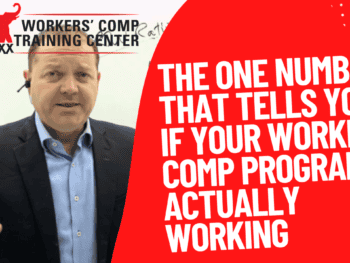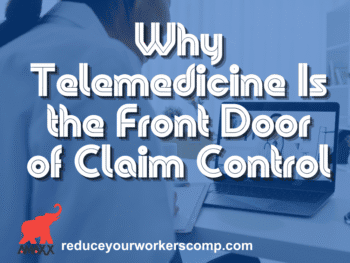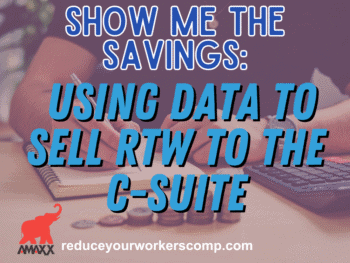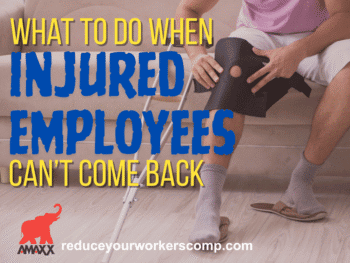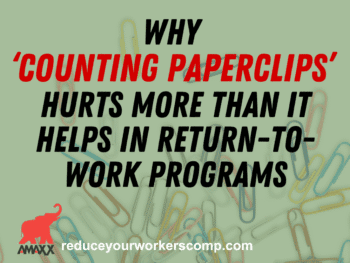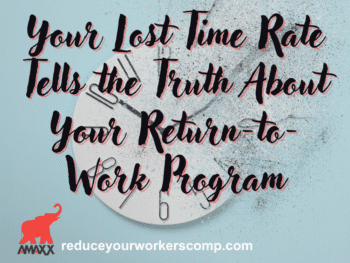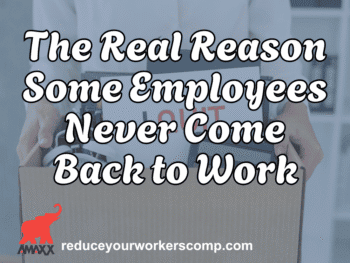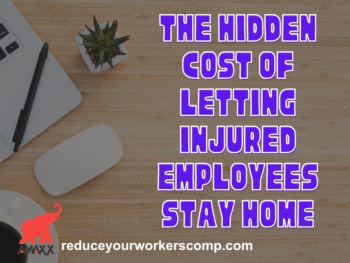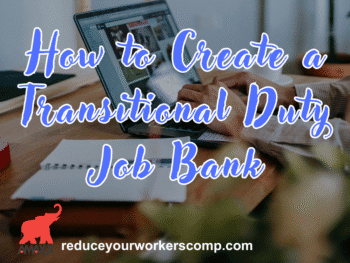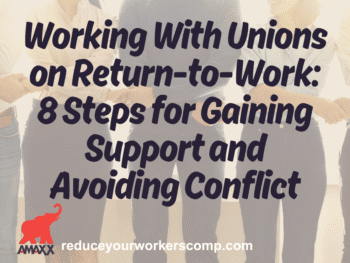A direct quote, one that I hear often from stubborn business owners:
“If I do nothing, my risk for further injury or for anything bad happening stays the same as it is now, which is that there is no risk. If my injured worker falls in the snow at the grocery store on his already broken arm that was broken at my job, it’s their problem not mine*. If he falls on his way into my building for his light duty job, now it is my problem. And I don’t want that problem!”
*Depends on jurisdiction
“Why do you not have light duty work for your injured workers?”
What this businessperson is talking about is an answer to my question of “Why do you not have light duty work for your injured workers?”
Ah yes, my favorite of topics. My rebuttal to this typical response is that I hope he “Has deep pockets,” because whether this is a self-insured entity or one that has a traditional insurance policy, he will be paying a lot more in the years to come. Meanwhile his workers sit back and enjoy the cold weather by looking out of the comfort of their living room windows.
Putting this ridiculous alleged risk aside, he makes a point. Yes, there is a chance if you bring a worker back and they are hurt, something could happen. They could get hit by another employee on a pallet jack, they could fall, they could aggravate the injury and make it worse, etc.
Living Life In Fear Leaves You Paralyzed
But these are all pretend possibilities. If we were to always use this mindset, everyone would stay at home because if they step outside there is a chance they could get hit by a car. Don’t laugh; the odds are there every single day. They are small odds, but they are still odds. It does happen to people. A car could come flying down the road and hit you. It can also hit you while you are inside the house, it could fly up your yard and right into your living room. So to be safe, you should sit in the basement. But the car, if it comes in your house, could fall through the floor and land on you. So are you safe anywhere?
It is silly to think this way, and most of us brave the odds by going outside all of the time and most of us do not get struck by a vehicle no matter where we are. You cannot live life thinking this way, and you run a business holding those hypothetical odds for a re-injury to your injured worker. Another typical response to my question is “Hey isn’t that what I pay an insurance premium for, so workers have coverage when they are hurt?”
Yes, you do. But not for guys to milk a back strain for 8 weeks when you could give them a light duty job the day after the injury and not miss even a half a day of work.
If you decide to do nothing, and keep workers home until full duty, you will get something in return. You will get increased claim wage costs. You will get increased premiums, increased time away from work, increased suspicious claims, reduced productivity, decreased profits, lost productivity, and countless other things.
A Return To Work Program Puts You In Control
On the other hand, if you maintain and enforce a light duty work program, things are different. You enforce the rules. You monitor employees. You keep them working. You find things for them to do. You maintain productivity. You can reduce premium. You basically do the opposite of the tiny list I rattled off in the above paragraph. Those suspicious claims are going to go away. Workers know not to even try, because they will just end up getting a job they do not want to do but are now forced to do. Plus if your light duty program drops their pay a few dollars per hour, why try and pull an extended vacation when you cannot even sit at home for 5 weeks pretending to be hurt? And you lose money too? That’s no fun.
Here is the reality: Absences due to work injury lead to issues in other areas. Other workers have to pick up the slack. It can affect your staff productivity, morale, retention, and their overall attitude towards your alleged safety program. Disgruntled workers are workers that file bad claims. Suspicious claims. Costly claims.
You gain so much by keeping injured workers working. You have fewer absences, increased workforce retention, better productivity, better morale, higher profit margins, decreased insurance issues, and so on. Everyone knows their role, and what they are supposed to do. Just because a guy has a back strain doesn’t mean he is void of all workability.
Small Problems Can Turn Into Big Problems
But if you sit them at home with nothing to do, their brain starts to work overtime. Those thoughts start to creep in. Thoughts like:
“Boy, I really hope I don’t have to have surgery. Bill had surgery, and he was out of work for years. In fact, he never went back to work at all. He settled his case after all of those nasty court dates. But he seems happy now. I’m not like Bill though, my back isn’t that bad. But of course his wasn’t bad early on either. It kind of got worse when pain and numbness went down his legs. I’m not sure if I have that or not. I hope I don’t. What if I do? What if I end up like Bill? Will I ever work again? Is the insurance company watching me right now, do they think I am legit? I better act a lot more hurt, just so they believe I am hurt. Maybe they will leave me alone if I get a surgery, that way they will know I am hurt for sure. The doctor wouldn’t do surgery unless they had to, right?”
Author Michael B. Stack, CPA, Principal, Amaxx Risk Solutions, Inc. is an expert in employer communication systems and part of the Amaxx team helping companies reduce their workers compensation costs by 20% to 50%. He is a writer, speaker, and website publisher. www.reduceyourworkerscomp.com. Contact: mstack@reduceyourworkerscomp.com.
©2013 Amaxx Risk Solutions, Inc. All rights reserved under International Copyright Law.

